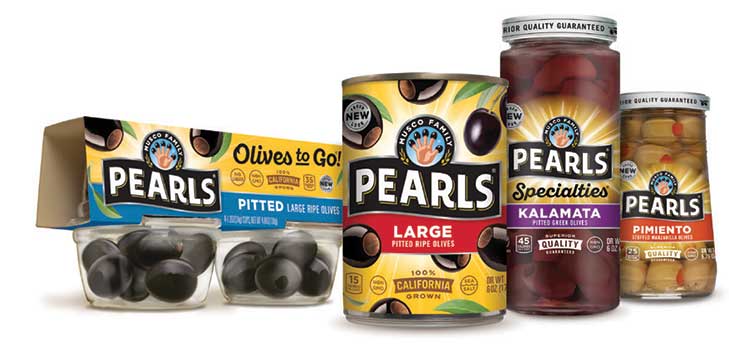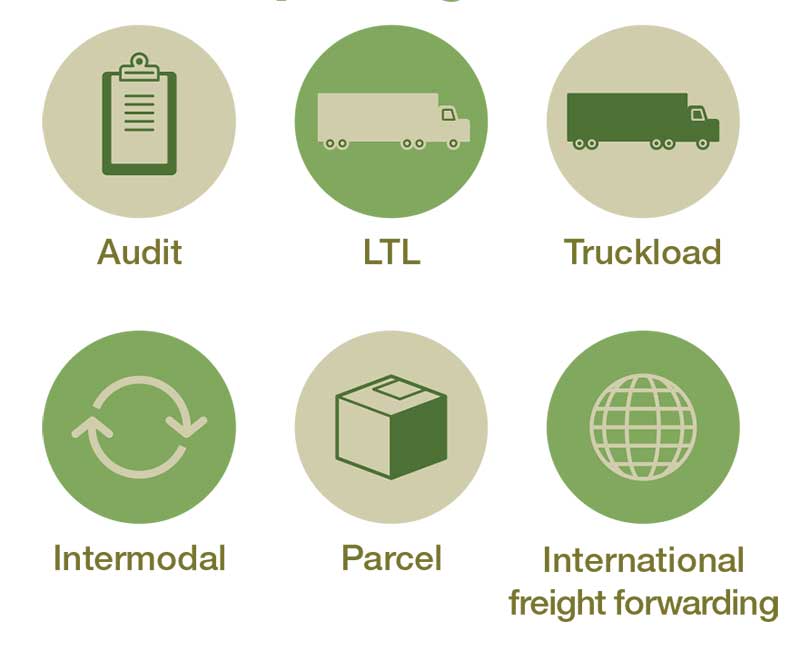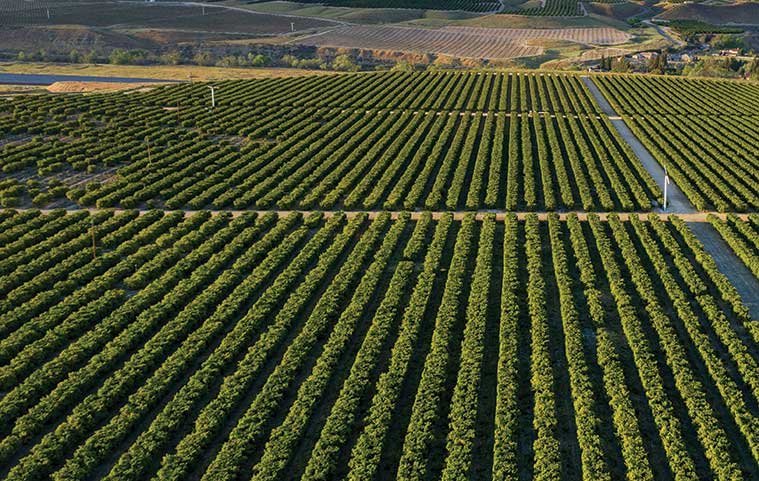Musco: A well-oiled supply chain
With the help of its 3PL partner, Musco Family Olive Co. converted its manual processes to an automated transportation management system, allowing the shipper to lower its total spending by more than 10% in the first year. Here’s how this shipper implemented new solutions for age-old problems.

Shippers who find themselves stuck in the “we’ve-always-done-it-this-way” of thinking might be able to learn a few new tricks from an 80-year-old family-owned California olive company that recently partnered with a 3PL to realize some big-time benefits.
Musco Family Olive Co. is the nation’s leading provider of table olives from more than 450 California farmers and supplys a significant portion to private label sellers—which equates to ownership of a majority of the U.S. olive market.
The Challenges
With capacity tough to find
and continuously rising costs,
it became more difficult for
the company to scale their
operations and coordinate
shipments since it was all being performed manually.
And with its growing volumes, the company knew it needed better efficiency to maintain service to customers and mitigate the impact of rising freight transportation costs. However, the problem was that Musco lacked a coordinated system for tendering outbound shipments, and its processes were consuming hundreds of hours of manual work every week.
“As a family owned and operated business that’s been around for more than 80 years, we had a lot of manual and outdated processes that just stuck around because it was how we had always done it,” says Michael Lin, Musco’s senior director of supply chain.
This lack of coordination was leading to double- and even triple-brokering of loads. Some brokers would re-broker the freight to asset-based carriers, but that created concerns about chain of custody for the valuable foodstuffs.
What was needed was a partner experienced with solving complex transportation problems in a cost-effective manner to make Musco’s transportation operation on a par with the quality of its olives. The solution came in the form of AFS Logistics, a third-party logistics company with expertise in auditing, less-than-truckload (LTL) and truckload freight, parcel, intermodal and international freight forwarding.
Let’s trace the path of Musco’s savings from the beginning of this partnership in 2019. We’ll discover how its 3PL partner implemented more efficient processes and technology for Musco, and then explore how those efficiencies allowed the shipper to lower its total transportation spending by more than 10% in the first year.

Out with the old
In early 2019, Musco wanted to eliminate waste of hours and cost across multiple modes. This involved a hard examination of long-tenured brokers and carriers that retained Musco business year after year. The shipper found that it was paying inflated transport costs with no impartial processes to ensure that the most cost-effective option was being used.
Internal controls were also absent. Musco lacked an effective track-and-tracing system for visibility into the full cycle of their shipments. And because they weren’t auditing their LTL, truckload or intermodal freight, they had no way of knowing if they were being billed inaccurately.
Without that visibility into the true cost of freight services and lack of data on load status, it became impossible for Musco to dispute claims for late or partial shipments. This left the company vulnerable to overpayments in accessorial charges as well as customer deduction claims.
“I’ve worked for large companies and people kind of get stuck in their old processes,” says Lin, who came to Musco after years of working at PepsiCo. “That mentality is fairly prevalent in a lot of organizations, big and small,” he says. “Unless you have continuous improvement programs to challenge the status quo, if something is working you don’t always ask if there’s a better way.”
When Lin joined Musco in 2019, he knew the family-run business needed a shakeup. “When it came to freight, what jarred me was we were a national distributor, yet all of our brokers were located within 20 minutes of our plant,” he says. “The brokers would then contact another broker on the East Coast for a shipment. Everyone was getting a piece of the action.”
Orders to brokers were sent via e-mail, even though they were just 20 minutes away. Orders were entered manually, and when bills arrived, freight rates came down to what people remembered. “How do you know the price is right?” Lin asks. “Rates change all the time. I remember thinking to myself: ‘We can put on a man on the moon. We have to be able to do processes a little better than this.’”
The Solution
- Convert MANUAL processes to AUTOMATED
- Improve WORKFLOWS and reduce manual HOURS
- Support to quickly adjust to market DISRUPTIONS
- Execute invoice AUDIT process
- Coordinate annual freight BIDS
- Conduct NETWORK analyses
- Review to track PROGRESS and PERFORMANCE
In with the new
By mid-2019, Musco realized that it had enough of wasteful hours and inflated costs across multiple modes of transport. It turned to AFS, which has proven to be what Lin calls the “differentiator” that vaulted Musco to where it needed to be in securing the lowest transportation rates while scaling operations to keep up with global and domestic supply chain changes.
As part of the solution, AFS implemented a transportation management system (TMS) for Musco and took ownership of the entire life cycle of shipments. It then converted old manual processes to the TMS, which was then integrated into Musco’s enterprise resource planning (ERP).
All outbound freight notices for both sales and internal stock transfers were electronically sent to AFS. The 3PL then sought the most competitive transportation rate from a wide assortment of pre-vetted carriers. Data was automatically loaded into Musco’s ERP for billing and tracking.
By introducing automation to the system, AFS was able to improve Musco’s work flows and reduce the manual hours spent coordinating and managing shipments as well as scheduling transport appointments and filing claims. Another important aspect was AFS’s ability to help Musco quickly adjust to any market disruptions. The 3PL was able to monitor with full transparency to seek mode optimization while proactively addressing issues when they occurred to maintain Musco’s high service standards.
To help Musco gain control of inaccurate fees and surcharges, AFS executed an invoice audit process on all modes. Through a comprehensive review of every bill, Musco can now recover overcharges, ensuring that it never pays more than the negotiated rate while simultaneously consolidating weekly billing into one invoice.
By adding this practice to their standard operations, Lin and the Musco supply chain team now have a documented audit trail to assist in resolving any potential discrepancies.
For ongoing support and optimization, AFS coordinates annual freight bids for Musco’s carrier network. AFS also conducts network analyses to identify opportunities for movement or consolidation of warehouses. Quarterly business reviews are performed to track progress and performance and to pinpoint any suboptimal shipments.
“I’ve worked for large companies and people get stuck in their old
processes…That mentality is fairly prevalent in a lot of organizations,
big and small…Unless you have continuous improvement programs to
challenge the status quo, if something is working you don’t always
ask if there’s a better way.”
These process improvements worked for two main reasons, says Andy Dyer, president of transportation management for AFS Logistics. “One was that there was significant due diligence and gathering of requirements, and the other was correct program and implementation governance,” he says. “It takes both customer and 3PL to bring the right governance to the table.”
Managed services Mucso will be putting to work:

What’s the bottom line?
According to Lin, automating its processes through its 3PL helped the shipper lower the company’s total transportation spend by over 10% in the first year; saved the company over $150,000 in lost sales in one instance on a single shipment; restructured roles and responsibilities within Musco to improve quality of employee contribution; and increased Musco’s carrier mix by 100%.
Linn adds that AFS has truly become part of its logistics team that’s able to keep up with fast-moving changes in the global and domestic supply chains. “Not only that, but the quality of the data they provide has revolutionized the efficiency of our warehousing network.”
On a scale of 1 to 10, Lin says he rates the entire process a 9.5. “Musco is now securing capacity at much better rates, and tracking and tracing are improved as well.”
The Results:

What’s next?
The next step in Musco’s logistics evolution will be handing over control of international shipments to AFS to lower transit times, secure the chain of custody, and help drive down higher than necessary volumes of safety stock.
And Musco moves to import more black olives from Spain and the Mediterranean, Lin says they’re turning the ocean freight shipments over to AFS as well.
“One thing I would say about managed transportation solutions
is that it’s about giving customers discipline and control of their
networks…They design it and control the cost and services.
At end of day, this is about giving customers discipline and control.”
“Over the past year, ocean freight has been a bottleneck with soaring rates on some lanes,” Lin explains. “I’m a data geek, and AFS’ analytics are outstanding. But the big thing is that they’re an advocate for us from a cost and service standpoint. We had a couple loads stuck at the port, and we called AFS and it was able to free up a load so we saved $150,000 in sales right there that I would have lost on my own.”
Another facet that AFS employs involves expanding a scorecard methodology used for transport providers to track performance of its network of warehouses to measure service and track internal costs at each location. In the end, it’s all about better control.
“One thing I would say about managed transportation solutions is that it’s about giving customers discipline and control of their networks,” Dyer adds. “They design it and control the cost and services. At end of day, this is about giving customers discipline and control.”
Lin adds that it’s simply about relationships. “It’s been a partnership—not transactional,” he says. “I’m looking at our business now through the lens of ‘how can we get better?’ I appreciate that it’s not a transactional thing













